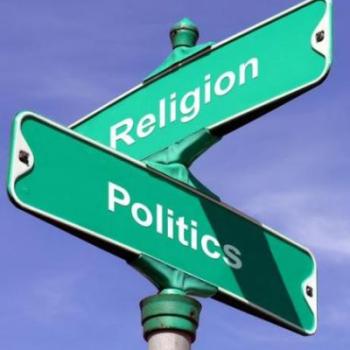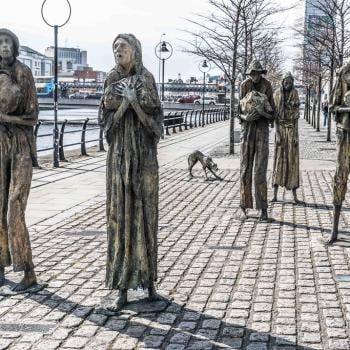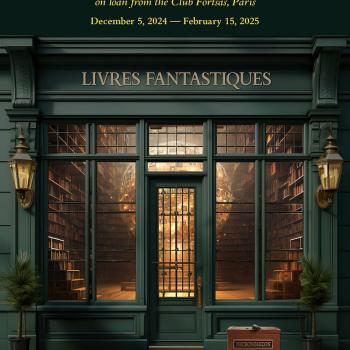My favorite is the second to last line, ac alys us of yfele. Yfele makes sense once you say it out loud: it's "evil" with a y sound up front and a little breath at the end. But what on earth does alys mean? It certainly doesn't sound anything like "deliver." But again, the answer comes if you say it out loud often enough: alys. Aloose. Set us loose from evil, as though evil were tied about us like a rope. (Old English tends to be much more literal than Modern English.) I still smile constantly when I read Old English: it's like reading a cipher, and the code is the sound of English across the centuries.
But the fact that the Lord's Prayer comes so easily to me brings up the more difficult side of Old English studies. The Anglo-Saxons only gain access to writing—at least writing in the modern sense of documents, manuscripts, and literature—after Christianization. There's little explicitly pagan content still extant: the writing comes from Christian hands, and they are generally not very sympathetic to the worldview of their pagan forefathers. There is no corpus of Anglo-Saxon myths in the manner of the Greeks or the Icelanders. Our knowledge of their religion is another jigsaw puzzle, but a much larger, and much less complete, puzzle than their language.
Even in Beowulf, the greatest work of art from the Anglo-Saxon era, there is little hint as to how the pagan characters in the poem related to their gods. The information there tends to be vague and infected with Christian condemnation. Consider these lines, in which the Geats (the tribe whose story is the center of the poem) go to their shrines to pray for the gods to save them from the monster called Grendel:
Hwilum he geheton aet haerg-trafum
wig-georthunda,wordum baedon,
thaet him gast-bona geoce gefremede
with theod-threaum.Swylc waes theaw hyra,
haethenra hyht:helle gemundon
in mod-sefan, Metod hie ne cuthon
daeda Demend, ne wiston hie Drihten God
ne hie huru heofena Helm herian ne cuthon,
wuldres Waldend.
Seamus Heaney translates this beautifully in his version of Beowulf:
Sometimes at pagan shrines they vowed
>offerings to idols, swore oaths
that the killer of souls might come to their aid
and save that people. That was their way,
their heathenish hope; deep in their hearts
they remembered hell. The Almighty Judge
of good deeds and bad, the Lord God,
Head of the Heavens and High King of the World,
was unknown to them. (lines 175-83)
This attitude is prevalent through Old English literature; on the rare occasions the heathen religion is mentioned, it is compared to the writer's Christianity and found wanting. I suppose it's hard to expect much better from monks.
While I loved studying Old English, the study was always tinged with sadness: while this was the language of the Saxon heathens, all the words had been filtered through Christianity. Any understanding of Heathenry had to pass through not just the mist of centuries, but through the animosity of the scribes: a reflection of a broken mirror.





